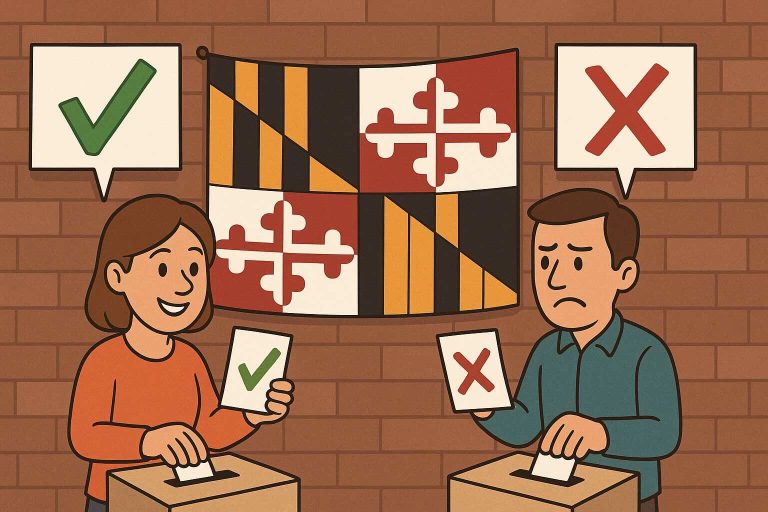
A recent survey from National Association Against iGaming (NAAiG) made waves when it found that 71% of registered voters in Maryland oppose online casino legalization. But before this figure becomes the definitive voice of the people, it’s worth stepping back and asking: What does that number actually measure, and how much should it shape public policy?
Beyond the Headline: What the Poll Actually Measures
The headline figure is drawn from a survey conducted by Lake Research Partners during mid-September 2025. What’s critical is that the 71% comes after respondents were exposed to messaging about risks associated with online casinos—24/7 phone access, ease of play, potential harms. In other words, this is less a “what do you think right now?” snapshot and more a “what do you think after hearing an argument?” exercise.
That matters: Message-test surveys are standard tools in political and lobbying campaigns. They’re designed to show how opinions can shift when one side of a debate is framed. They’re valuable—but they don’t always reflect neutral, pre-formed public opinions.
Will the Poll Sway Lawmakers? Maybe — But It’s Not the Only Factor
Yes, the poll is relevant. It gives lawmakers ammunition and could shift how they perceive the political terrain. If 70%+ of voters oppose online casinos—even after messaging—it may discourage some legislators.
But the terrain in Maryland is more complex. Legalizing online casinos is often pitched in the broader context of raising revenue, protecting jobs, and regulating a marketplace that already exists offshore. Budget pressures, education funding promises, and internal legislative dynamics continue to keep iGaming on the agenda. So a single survey—even a high-profile one—is just one piece of the puzzle.
The Pro-Legalization Perspective: What Supporters Are Saying
Supporters of legalization offer several viewpoints:
- Job creation and local studios: Some legislation proposals require live-dealer studios to operate in-state, preserving existing casino jobs and bringing new tech and service roles to Maryland.
- Regulation and safeguards: Proposals include prohibiting credit-card funding for online casino accounts, higher tax rates on random number-generator games versus live-dealer, and dedicated oversight for problem gaming.
- Revenue for the future: With long-term obligations such as the Blueprint for Maryland’s Future, some lawmakers and advocates argue that a well-regulated online casino market could provide meaningful funds without raising broad-based taxes.
These aren’t just talking points. They reflect active proposals and hearing testimonies from this year’s legislative session.
Where Does the Community Stand, Really?
The community’s sentiment—on balance—is cautious, but not fixed. The survey shows reluctance, especially when risk messages are primed. What it doesn’t show is what happens when the question is framed with job-creation, consumer protection, and revenue-generation in parallel. In those contexts, voters may shift.
In short: the “71% oppose” figure is a meaningful data point, but it is conditional. It’s a slice of opinion shaped by particular messages, not a definitive verdict.
The Bottom Line: Headlines Aren’t Enough — Context Counts
Policy debates deserve more than sound-bites. If Maryland moves toward a voter referendum on online casinos, we’ll need transparency around wording, comparable data on both risk and benefit framing, and an honest discussion about the trade-offs: revenue vs. risk, convenience vs. regulation, competition vs. jobs.
A robust public debate asks more than,“Do you oppose?” It asks, “What would you support, if certain safeguards were in place?” The poll from NAAiG and Lake Research Partners ought to be part of that debate—not the final word.





